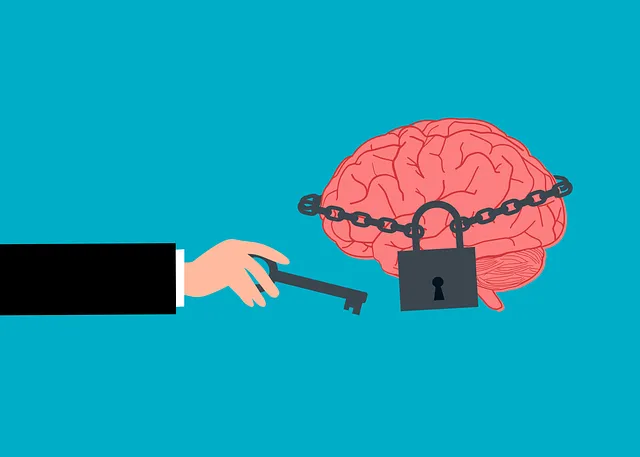Lafayette Kaiser Permanente mental health professionals face challenges like long hours and high caseloads. To combat burnout, self-care practices like boundaries and compassion are encouraged. Effective risk management involves comprehensive assessments, training, and interprofessional collaboration for personalized care. Stress management techniques and evidence-based practices create a safe environment. Crisis management strategies, continuous training, and professional development ensure the mental health team is prepared to handle crises and deliver optimal care.
Mental health professionals face unique challenges, with risk management being an essential component of their practice. This comprehensive guide explores vital strategies for navigating potential hazards within the field, focusing on client care at Lafayette Kaiser Permanente. By understanding specific mental health risk factors, healthcare providers can develop robust assessment frameworks and implement safety protocols tailored to each patient’s needs. The article also covers crisis management, continuous training, and intervention techniques to ensure a proactive approach to risk mitigation.
- Understanding Mental Health Risk Factors
- Developing a Comprehensive Risk Assessment Framework
- Implementing Safety Protocols for Client Care
- Crisis Management and Intervention Strategies
- Continuous Training and Professional Development for Risk Mitigation
Understanding Mental Health Risk Factors

Mental health professionals encounter a diverse range of challenges and risk factors on a daily basis. Understanding these risks is pivotal in maintaining a healthy work-life balance, as issues like burnout can have severe consequences for both practitioners and their patients. Key risk factors include long working hours, high patient caseloads, exposure to traumatic content, and the constant demand for empathy and emotional support. These factors contribute to heightened stress levels and can lead to professional exhaustion if left unaddressed.
Lafayette Kaiser Permanente mental health professionals are encouraged to prioritize self-care routine development and compassion cultivation practices as essential burnout prevention strategies. Regular breaks, setting clear boundaries between work and personal life, engaging in compassionate self-reflection, and accessing support networks are effective ways to mitigate these risks. By integrating such proactive measures into their routines, healthcare providers can ensure they remain resilient, present, and adept at delivering quality care to their patients.
Developing a Comprehensive Risk Assessment Framework

In the realm of mental health care, effective risk management planning is paramount to ensure patient safety and foster a supportive environment. A key component of this process involves developing a comprehensive risk assessment framework that anticipates and mitigates potential hazards. For Lafayette Kaiser Permanente mental health professionals, this means adopting a structured approach that encompasses not just clinical assessments but also the unique challenges presented by each patient’s personal and social contexts. By integrating self-esteem improvement, emotional healing processes, and compassion cultivation practices into their risk assessment toolkit, practitioners can identify subtle yet significant risks that may otherwise go unnoticed.
This framework should be tailored to address a wide range of factors, from individual psychological vulnerabilities to systemic issues within the healthcare setting. Regular reviews and updates are essential to ensure the assessment tool remains relevant and effective. Through rigorous training and inter-professional collaboration, mental health professionals can enhance their capacity to conduct thorough risk assessments, thereby enabling them to provide more personalized and compassionate care that effectively navigates complex patient scenarios.
Implementing Safety Protocols for Client Care

Implementing robust safety protocols is paramount for mental health professionals to ensure the well-being of their clients and themselves, especially in high-stress environments like Lafayette Kaiser Permanente mental health clinics. These protocols serve as a foundational framework, guiding practitioners in managing acute situations while fostering a supportive atmosphere. By integrating evidence-based practices such as emotional intelligence and compassion cultivation, professionals can enhance client care and personal resilience.
For instance, training in stress management techniques enables therapists to recognize signs of distress in both themselves and their patients, allowing for timely intervention. This proactive approach not only prevents burnout but also strengthens the therapeutic bond by demonstrating empathy and understanding. Incorporating these strategies into routine practice ensures a safer, more nurturing environment where clients can feel heard and supported throughout their mental health journeys.
Crisis Management and Intervention Strategies

Mental health professionals at Lafayette Kaiser Permanente prioritize crisis management as a key component of their risk management planning. This involves implementing robust intervention strategies tailored to address acute mental health crises effectively. One such strategy is the integration of Compassion Cultivation Practices, which foster emotional well-being promotion techniques among both practitioners and clients. These practices not only enhance resilience but also help in managing stress and trauma responses during critical situations.
Additionally, regular risk assessments are conducted to identify potential hazards and triggers that might contribute to crises. This proactive approach ensures that appropriate interventions can be swiftly deployed. By combining these measures with up-to-date training and resources, Lafayette Kaiser Permanente mental health professionals are well-equipped to handle crises while maintaining a supportive and therapeutic environment for all involved.
Continuous Training and Professional Development for Risk Mitigation

Mental health professionals must embrace continuous training and professional development as a cornerstone of their risk management strategy. Staying abreast of the latest research, evidence-based practices, and industry trends is vital to ensuring effective risk mitigation. By investing in regular workshops, seminars, and online courses, practitioners can enhance their skills in areas like Cultural Sensitivity in Mental Healthcare Practice, thereby fostering more inclusive and compassionate patient care.
Additionally, integrating innovative communication strategies and leveraging Mind Over Matter principles can significantly reduce professional risks. Effective communication builds trust with patients, improves adherence to treatment plans, and strengthens the therapeutic alliance. Embracing these principles not only enhances patient outcomes but also fortifies mental health professionals’ resilience against potential stressors within their practice settings.
Effective risk management planning is paramount for mental health professionals to ensure safe and compassionate client care. By understanding mental health risk factors, developing robust assessment frameworks, implementing safety protocols, and continuously training staff, practices like Lafayette Kaiser Permanente Mental Health can mitigate potential risks and deliver high-quality services. Remember, a proactive approach to risk management not only protects clients but also fosters a healthier and more supportive working environment for mental health professionals.






